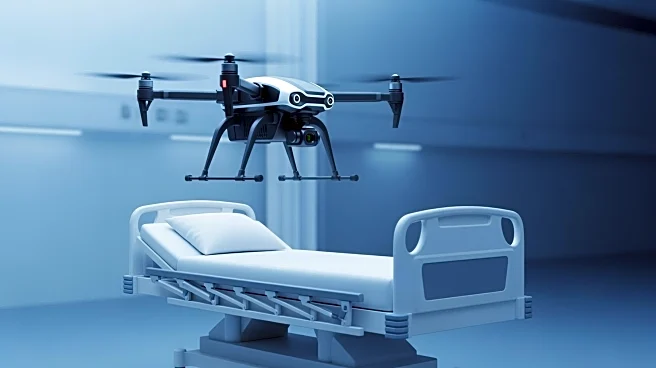What's Happening?
The rise of AI technologies, such as ChatGPT, has led to a significant reduction in job postings across the U.S., with a 32% decline since its debut. This trend is particularly affecting young workers,
including Gen Z, who are experiencing a 13% drop in job opportunities in AI-exposed fields like software development and customer service. However, the healthcare sector remains a resilient area, offering nearly 2 million job openings annually over the next decade. The sector's stability and low entry barriers make it an attractive option for young workers, despite the median annual pay of $35,000 not being ideal for many.
Why It's Important?
The shift in job availability due to AI advancements highlights the growing need for workers to adapt to changing market demands. While many traditional entry-level jobs are declining, the healthcare sector's resilience offers a stable career path for those entering the workforce. This trend underscores the importance of sectors that are less susceptible to automation, providing opportunities for economic stability and growth. The healthcare industry's demand for workers is expected to increase as the population ages, ensuring continued job availability.
What's Next?
As AI continues to influence the job market, young workers may need to consider careers in sectors like healthcare that are less affected by automation. The ongoing demand for healthcare professionals suggests that this sector will remain a viable option for stable employment. Additionally, there may be increased emphasis on training and education to prepare workers for roles in industries that are more resistant to AI disruption.










